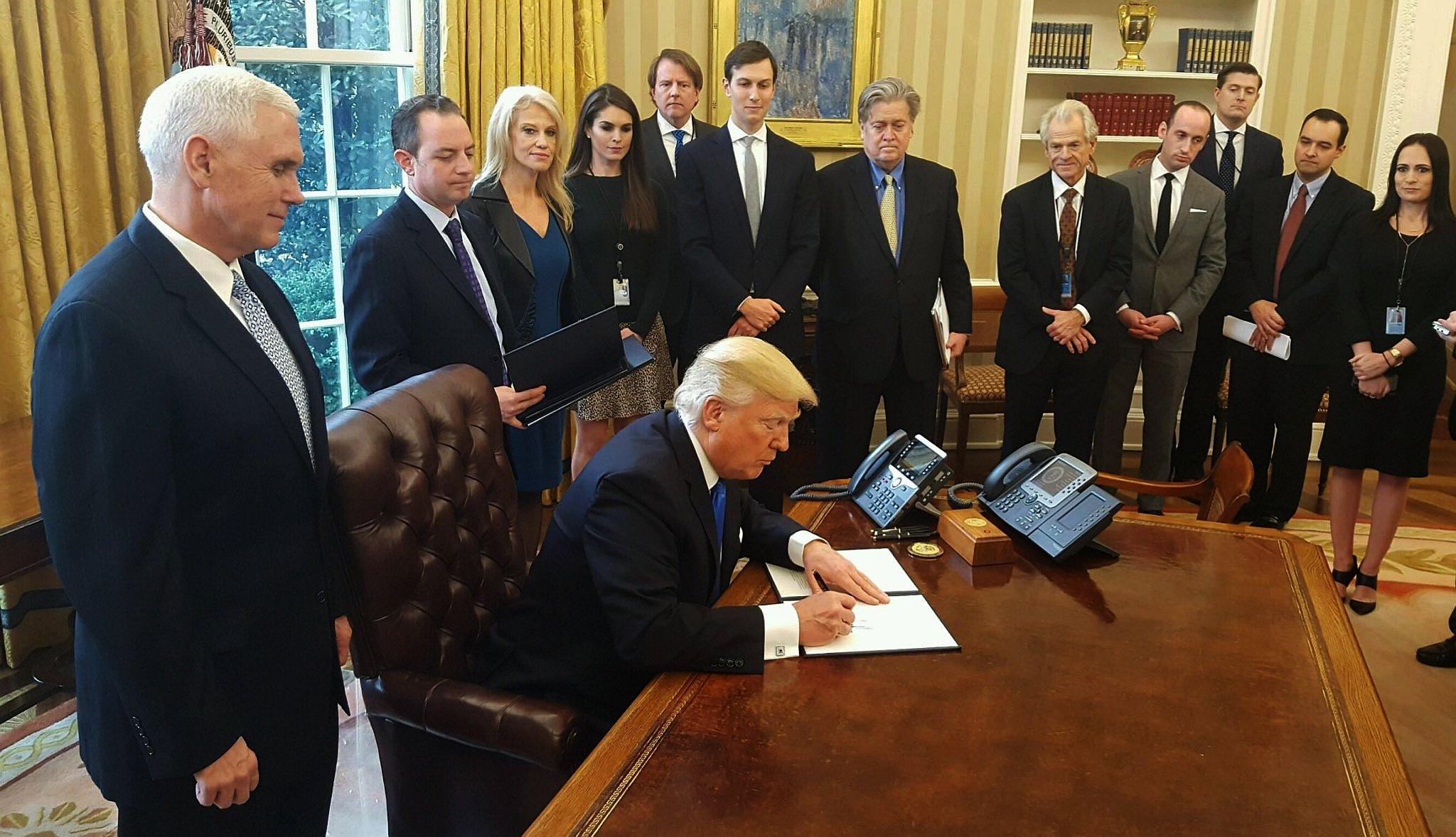The Economist labels Trump the 'Biggest Danger to the World in 2024'
Photo Courtesy: Wikimedia Commons
This month, the Economist predicted the greatest danger to the world in 2024 would be a Donald Trump presidency. Although the headline may seem extreme, it is not an unlikely reality.
Indeed, the former president continues to lead Republican polls. Since polling started, Trump has mostly dominated Ron DeSantis, the next strongest candidate and current Florida Governor. With the first Iowa caucus less than two months away, Trump’s current lead of 50+ points means that even in a one-on-one match-up, which won’t be the case, he would be difficult to beat. Moreover, The Times found that if Americans voted today Trump could beat Biden. Concerns about Biden’s age are growing and he is losing the support of non-white voters, a key Democratic sector. However, although polls show Trump gaining on Biden in a hypothetical election, polls have been wrong in the past.
If Trump did regain power, there would be global upheaval. The article argues this time round, he “would be more organised” and would “wage war on any institution that stands in his way”. By winning the election, Trump would feel he had proved his detractors wrong - including the federal courts who dismissed over 50 lawsuits brought forward by Trump’s allies alleging election fraud. He would accordingly use his power to fuel his revenge.
The article’s gloomy warning is especially meritorious considering climate change. Trump has a poor track record with green policy, having withdrawn the US from the Paris Agreement, appointed a climate denier EPA chief (Environmental Protection Agency), and famously called climate change a “hoax”. This alone proves that his re-election would be globally destructive. Even with a Democratic president, the US government continues to sideline environmental issues, as demonstrated by Biden’s approval of Trump’s Willow Project. This existential threat has compounded since 2016: without immediate aggressive action, the climate will warm by 3 degrees Celsius, increasing the annual chance of a global heatwave by 80% and nearly tripling drought periods. Electing a president who asserts the US has “no global responsibility to help deal” with this crisis would be catastrophic.
Trump approving the Keystone and Dakota Access Pipelines // Photo Courtesy: Wikimedia Commons
Trump reminded us of his erratic diplomacy by labelling Hezbollah, a militant Lebanese group, “very smart”, blaming the Biden administration for the Gaza conflict, and promised that if re-elected, he would “permanently” destroy Hamas. Trump would likely support Israel regardless of hindrances to future chances of peace.
Stating the US is “giving away too much” to Europe, and that he would end Ukraine’s war in “24 hours”, it is fair to assume he may use his executive powers to reduce support. The Economist argues this would only motivate Putin to target other Eastern European countries, far from ending the conflict. As the largest supplier of military aid to Ukraine, reneging on this commitment would only help Putin. Indeed, with his unpredictable, American-centric approach to international relations, he would wreak havoc on an already volatile global stage.
A second term would also alter the US’s global status. The Economist points out that Trump as the people’s choice would significantly reduce the moral authority the US prides itself on, warranted or not; any moral appeals justifying foreign intervention would carry little weight. Indeed it would fuel views that American democracy is broken, ultimately eroding the US’s reputation as the global liberal superpower, perhaps demoting it to just “another big power”.
The elephant in Trump’s campaign is his multiple criminal charges. He is still eligible for the presidency even if convicted — even from within prison – but this would likely be legally challenged. Most worryingly, investigations only increased his popularity. One poll shows most Republicans feel the investigation is politically motivated, painting Trump as the martyr of a broken establishment.
The Economist’s prediction is certainly dark, but it is only theoretical. Moreover, many issues could challenge global security in the coming year, like newly-elected populists in Hungary and Argentina and continuing conflicts in Ukraine and Gaza. A second Trump term is a real possibility, but not yet a reality. It is fair to say, however, that if it comes true, the international ramifications would be devastating.


